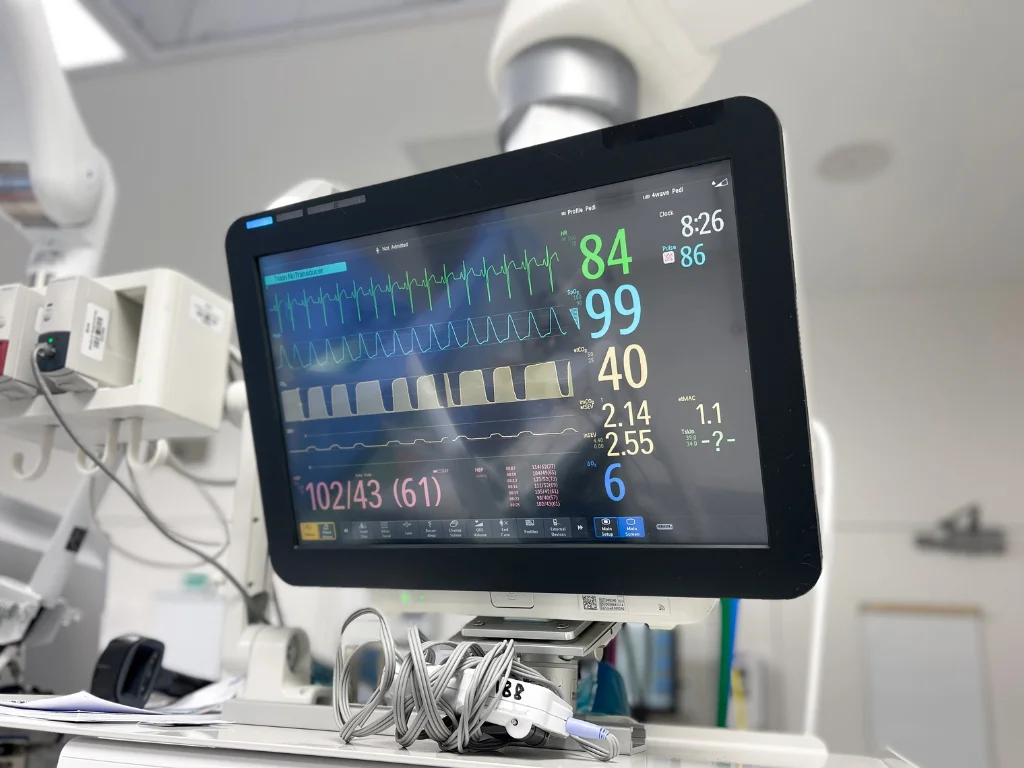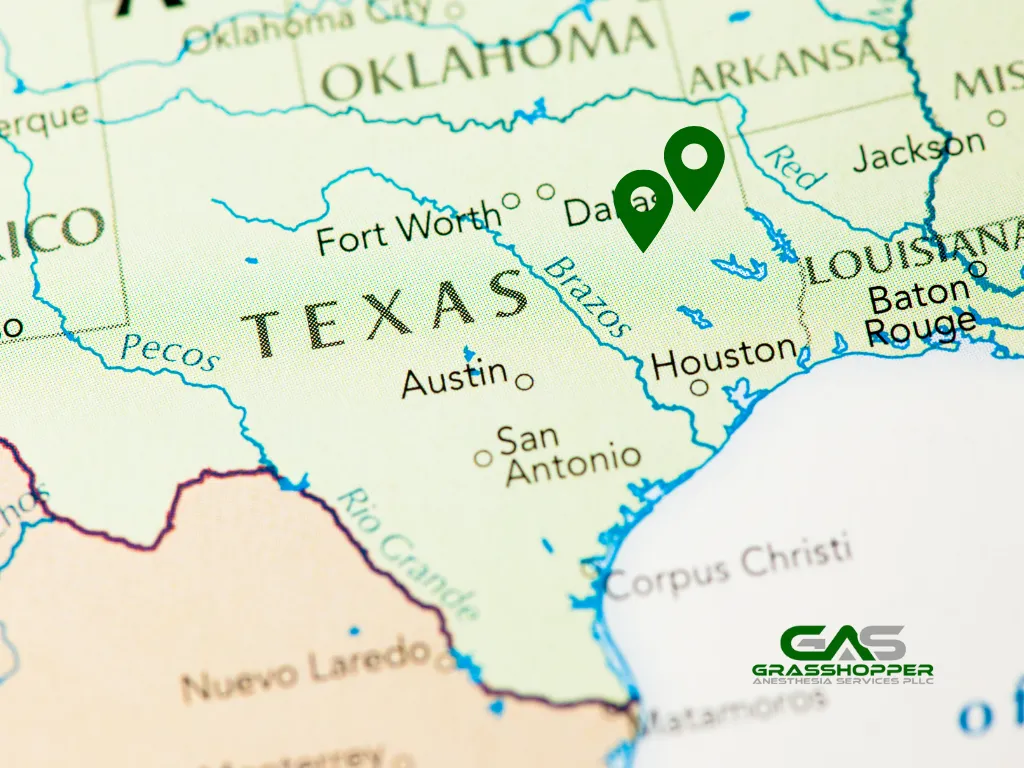by admin
Share
by admin
Share

February is American Heart Month, a time to focus on cardiovascular health and raise awareness about heart-related conditions. For individuals undergoing surgery, understanding the relationship between heart health and anesthesia is essential. Whether you have a known heart condition or just want to be informed, knowing what to expect can help you feel more confident about your care.
How Anesthesia Affects the Heart
Anesthesia plays a critical role in modern medicine, allowing patients to undergo procedures safely and comfortably. However, because anesthesia affects blood pressure, heart rate, and circulation, patients with heart conditions require special considerations. Below, we break down the key points to help you understand how anesthesia interacts with your heart.
The Role of Preoperative Screening
Before your procedure, your anesthesia provider will conduct a preoperative assessment to evaluate your heart health. This may include:
- Reviewing your medical history and medications
- Checking for high or low blood pressure, arrhythmias, or past heart attacks
- Ordering EKGs or other cardiac tests if needed
This evaluation helps determine the safest anesthesia approach for you. Patients with heart conditions may need additional precautions, such as adjusting medications or undergoing further testing before surgery.
Types of Anesthesia and Their Effects on the Heart
Different types of anesthesia can impact the heart in various ways:
- General Anesthesia: Can lower blood pressure and slow heart rate, requiring careful monitoring.
- Regional Anesthesia (Epidurals, Spinals, Nerve Blocks): Often safer for heart patients as they typically have less impact on heart function.
- Sedation (Twilight Anesthesia): Used for minor procedures and tends to have minimal cardiovascular effects.
Your anesthesia provider will select the best option based on your procedure and heart condition.
Managing Blood Pressure and Heart Rate During Surgery
During surgery, anesthesiologists and certified registered nurse anesthetists (CRNAs) carefully manage your vital signs to keep your heart safe. They may use medications to:
- Stabilize blood pressure if it drops too low or spikes too high
- Control heart rate to prevent regular rhythms
- Ensure proper oxygen levels to support heart function
Advanced monitoring techniques allow anesthesia providers to detect and address any issues immediately.
Post-Surgery Recover and Heart Health
Recovery after anesthesia is just as important as preparation. Patients with heart conditions should:
- Follow their doctor’s guidance on medications and activity levels
- Watch for signs of complications, such as chest pain, shortness of breath, or swelling
- Stay hydrated and eat heart-healthy foods to support recovery
Good postoperative care can reduce the risk of complications and promote better healing.
Why Choosing the Right Anesthesia Provider Matters
Choosing a skilled anesthesia provider is crucial to ensuring safe anesthesia management for patients with heart conditions. Provider skills and patient commitment are vital to quality anesthesia and care. That’s where Grasshopper Anesthesia excels.
Expert Anesthesia Care with Grasshopper Anesthesia
At Grasshopper Anesthesia, patient safety is the top priority. Our team of experienced CRNAs specialize in providing personalized, high-quality anesthesia care while ensuring optimal heart health management. With no on-call scheduled, weekends, or holidays, our providers are well rested and able to focus on the best care possible. Contact us to learn more about our expert, patient-centered care.
While rural hospitals are the backbone of healthcare access for countless Americans, these facilities continue to face a persistent and complex challenge: maintaining reliable anesthesia coverage. From staffing shortages to fluctuating surgical volumes and even limited recruitment avenues, rural facilities struggle to deliver consistent, high-quality care. Gaps in anesthesia coverage lead to a host of
Finding the right balance between personal and professional life can be challenging, especially for anesthesia providers. In today’s fast-paced healthcare climate, the demand for reliable professionals is growing faster than ever. At Grasshopper Anesthesia Services, our goal is to bridge the gap between work and life. We are committed to providing flexible placement opportunities that
Access to quality healthcare can look very different depending on where you live. While urban areas often have large hospitals and specialized providers nearby, many rural communities struggle with limited resources and long travel times for care. Grasshopper Anesthesia CRNAs transform communities by bridging the divide between quality healthcare and rural areas from Gonzales to
Not all CRNA jobs are created equal. The right opportunity isn’t just about location or pay, it’s about aligning your skills, lifestyle, and career goals so you can thrive in the long run. Going above and beyond just filling positions, Grasshopper Anesthesia matches CRNAs with the roles that fit them best. Learn about our process




